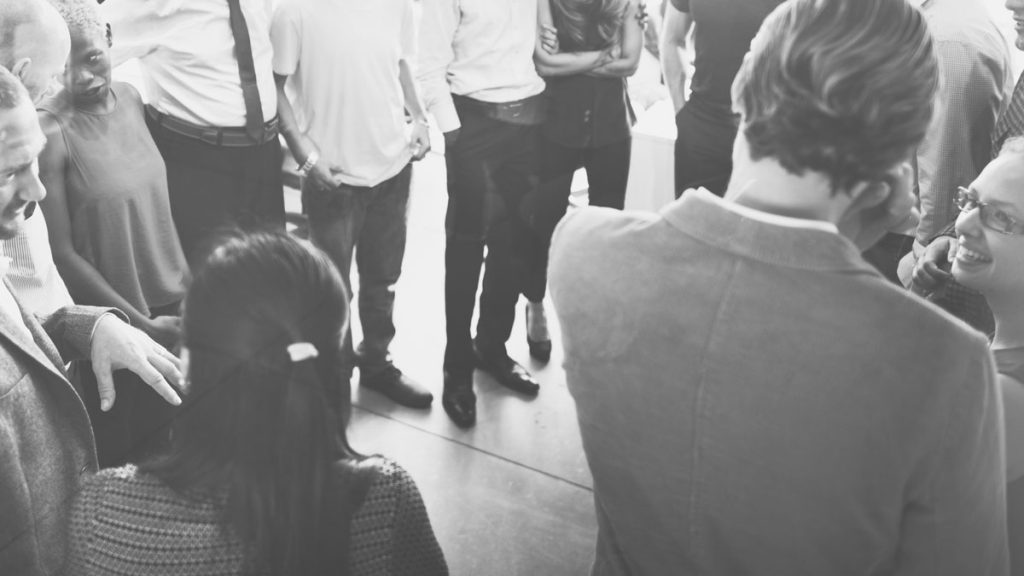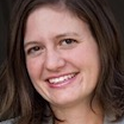
I’m at an event for nonprofit staff to meet and mingle with representatives from foundations. Just writing this in 2020 makes me squeamish—the gathering was about a year ago on an extremely hot day, and we were packed shoulder-to-shoulder in the event space. Hands were being shaken freely, there were shared doughnuts and coffee, and there was no hand sanitizer in sight. Oh, the good old days!
Given the ratio of foundation staff to nonprofit staff, the event turns into a networking event for the nonprofit folks, and I turn to a guy standing nearby and ask about the organization he’s representing: Matt Taylor with ICJS, the Institute for Islamic, Christian, and Jewish Studies. He shares this in the manner of someone who is used to getting blank stares when he describes his work. His job title is equally arcane—“Protestant Scholar.” He doesn’t know he’s talking to (1) someone who is used to the same blank stares when she shares the name of her organization; and (2) someone who, while agnostic, has a degree in theology and dabbled in interfaith conversation throughout her life.
It turns out our offices are very close to each other, and he’s right to assume limited knowledge on my part about ICJS. As we talk, he mentions, “You know the largest growing religious affiliation in this country are nuns.”
Okay, he’s got me. The wheels are turning. Nuns? First I think, “Huh, unexpected, but I could see it—maybe young women are disillusioned with the fast pace of our world and are embracing spirituality through contemplation at a never-before-seen rate.” Then I think, “Got it, this is some kind of joke…what’s that joke Great Aunt Dorothy used to tell, ‘I was going to be a nun, but then I realized I wouldn’t get none.’ Oh! /Nun/ /None/!’” By the time it all clicks, he tells me what it took me a beat too long to figure out—“nones” are those who, when given a survey of their religious affiliation, tick “none”—even if it’s not quite right, it’s the catch-all that captures a range of (dis)belief.
It’s the category I fall into, but not one that I would necessarily claim if someone were to ask me about my religion. None. “Not any.” “By no amount.” “Not at all.” “An integer that is neither positive nor negative.” None.
If asked about my religion I have a few pat answers. If I suspect the person is invested in believing me to be a person of faith, I’ll say, “My family is Lutheran” (which is true). If I want to leave room for further inquiry, I’ll say, “I was raised Lutheran” (which begs the question—what am I now?). It’s only when I’m actually talking to someone who I have formed a relationship with that I’ll share that I’m agnostic.
Some months after this conversation Matt reaches out to see if I’m interested in the Justice Leaders’ Fellowship program. I hesitate—it’s meant for interfaith conversation, and as a “none” what can I offer? I’m invited to participate anyway.
The program begins pre-COVID, with us all together in shared space alternating between reading, lecture, and small-group conversation, learning skills of interfaith dialogue. Our later sessions on Islam and Christianity are necessarily over Zoom. I find myself distracted—distracted by COVID, distracted by seeing my fellow cohort members as little boxes on the screen, distracted by participating in the session in the basement space that I have set up as my home office, distracted by the sounds of my family conducting the normal evening activities overhead.
While we’re studying Islam, though, Fatimah Fanusie says something that snaps me out of my distraction: the Qur’an is intended for all of humanity. The standard view is that foundational religious texts are reserved for believers, and that only believers have the capacity to engage with texts. In each of the textual discussions, instinctively our small-group members ask the practitioners of the faith to provide context or background. It is this revelation that gives me a sense of what I, as a “none,” can contribute to interfaith dialogue—that the study of religion and consideration of the world’s faiths are not only for believers, but that anyone can come to a text and find meaning.
 Amy Greensfelder is the Executive Director of the Pro Bono Counseling Project, and a member of the 2020 ICJS Justice Leaders Fellowship.
Amy Greensfelder is the Executive Director of the Pro Bono Counseling Project, and a member of the 2020 ICJS Justice Leaders Fellowship.
Baltimore is part of a national conversation around questions of justice, race, and community. Members of the ICJS Justice Leaders Fellowship consider how Jewish, Christian, and Muslim teachings and practice can contribute to the public conversation about (in)justice. Opinions expressed in this blog are solely the author’s. ICJS welcomes a diversity of opinions and perspectives. We do not seek a single definition of justice between or within traditions.